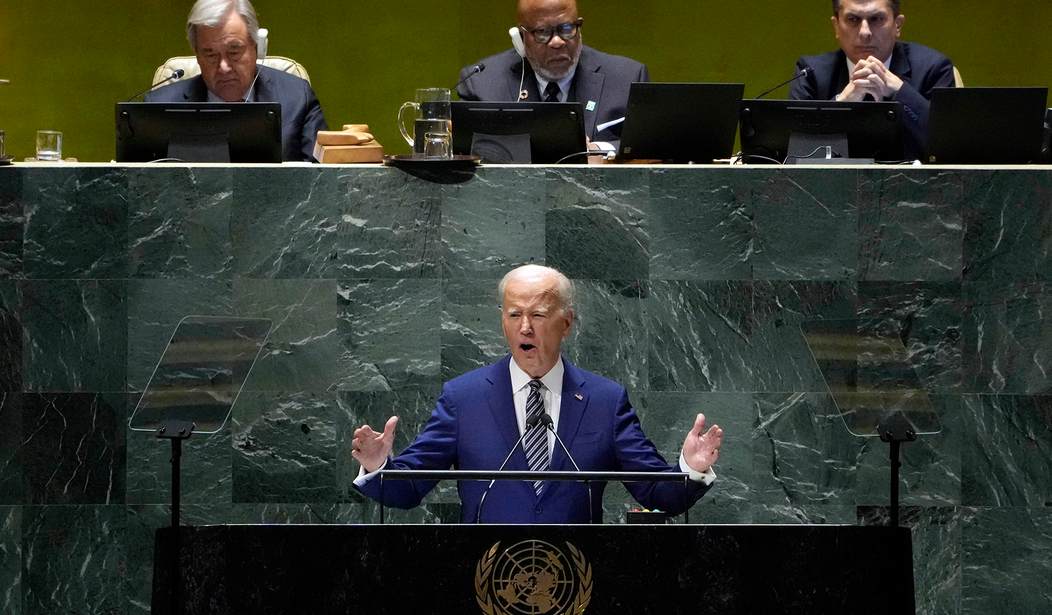It's been nearly 40 years since the Berlin Wall collapsed and the end of history arrived. While most people welcomed the peace and prosperity the interim has brought, the organic evolution of the world has been stunted, forced into a straitjacket, and grown misshapen. Our predicament is that we fear the bad old 20th century, and yet the shoes we walked out of its ruins with are pinching our 21st-century feet. No one feels the contradiction more than the hegemon itself. Is there any way for America to relax the reins on the world-order stagecoach without risking a team of runaway horses?
Greg Lawson frames the problem in this way. The U.S. rose to world power during an extraordinary century during which Europe committed suicide, and both Russia and China hampered themselves by subscribing to the dysfunctional Communist ideology. "As the long-standing global superpower, the United States has been at the core of establishing and maintaining the current global order since the end of World War II. "It became as close to a global hegemon as any power in the history of the world during the post-Cold War era."
However, hegemony was an unnatural state of affairs in the broad context of world history. The more common situation was multipolarity, and therefore, the end of history cannot last forever. Author Charles Krauthammer accepted that while it might last for decades, unipolarity would end someday. In the meantime, American efforts to preserve its hegemony, to freeze the moment, made things develop in twisted and unnatural ways, which created their own set of problems, perhaps the most obvious being the reliance of American NATO allies on Washington for security. Lawson argued that the twisting effect of the straightjacket was progressively making things worse. "The default legalistic and universalist American strategic approach to ensuring global order ironically risks breaking not only the current order, but any form of order while expediting a head long rush into catastrophe."
What could replace it? "Alternatives to the emergence of global anarchy range from a loose federation that emerges peacefully and spontaneously to a constructed, Westphalian based balance of power approach to a tributary type system as long practiced by China under the notion of Tianxia." At all events, "the U.S. needs a new strategy to erect a new global order that will be, by nature, multipolar."
Quite naturally, Washington's bureaucrats are hesitant to let go of their precious, choosing instead to temporize and print money to keep it going. But eventually, circumstances will force a change whether anyone likes it or not, perhaps at a disadvantageous moment rather than as part of a deliberate process. Change might not be a bad thing. Martin Hansen argues that "some level of entropy and disorder" would benefit the international system and allow it to develop but adds it is important where that entropy is located. (Note on entropy: the more microstates that make up a macrostate, the more entropy the macrostate has. In general, less entropy means simpler.) Might it not be better for America to keep order at home and accept chaos abroad?
A state would thus prefer a higher external entropy within rival countries (uncertainty and instability), in order to secure national interests and strategic position which can provide lower internal entropy and thus higher predictability within the country itself.
Or is it beneficial for America to accept some entropy at home also, to slacken the reins and accept loss of control, taking a risk on the unknown as all investors do, in exchange for the prospect of organic growth at home? Some theories suggest that innovation, and perhaps intelligence itself, is fueled by disorder and entropy. In that case, a wise Washington might prefer a more rigid system of control within rival countries (stasis) and higher rates of managed disorder within the country itself. Suppose the formula of order at home and chaos abroad echoes the great days of World War 2. In that case, the system of creativity at home outpacing the Brezhnevian abroad describes how America won the Cold War.
The balance is there to strike. Perhaps a future American world order should be based less on the continuity of institutions than upon the maintenance of comparative advantage in capabilities. The indefinite survival of the UN, NATO, the federal bureaucratic empire and elite structures, etc, is pointless if it undermines the purposefulness, social cohesion, and productivity of the United States. If America remains dynamic, then all else follows. If it stagnates, the UN can't save it. If the house burns, save the family, including the cat, first. If you save the family, you can always buy new furniture later.










Join the conversation as a VIP Member